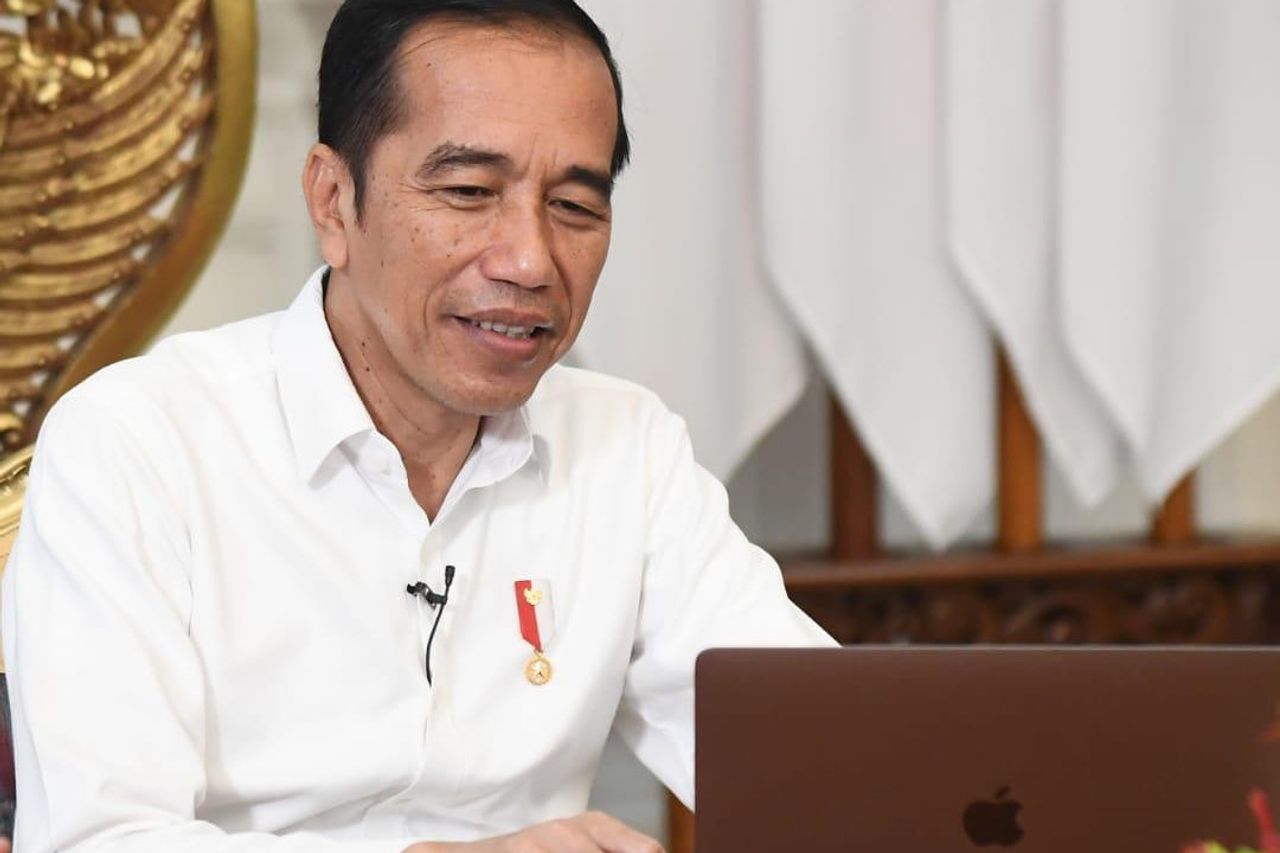Lokataru Survey: Joko Widodo's Government Is Considered Similar To The New Order Era

JAKARTA - The Lokataru Foundation released the results of a survey related to student perceptions about the Omnibus Law Cipta Kerja Bill that the Joko Widodo government is currently preparing. This survey was held in February, and was attended by 194 students (who after re-verification, became 180 people) from 77 campuses in 18 provinces such as DKI Jakarta, Lampung, Central Java, Banten, and various other areas.
Based on a release from the Lokataru.id website, this survey focuses on students' knowledge about the draft law, not questioning the contents of the Omnibus Law Cipta Kerja Bill. This is because knowledge of this draft is considered important, especially since there are 73 laws that will be revised, consisting of 15 chapters and 174 articles.
In addition, this design also contains 11 clusters, namely: Simplification of Business; Investment Requirements; Employment; Convenience, Empowerment, and Protection of MSMEs; Ease of doing business; Research and Innovation Support; Government administration; Imposition of Sanctions; Control of Land; Ease of Government Projects; Special Economic Zones (KEK).
"We consider the views of student groups important, especially regarding their views regarding the involvement of civil society in the drafting of this bill," they said in their release as quoted by VOI.
Based on the survey, as many as 93.3 percent of students admitted to knowing about the Work Creation Omnibus Law Bill and 56.7 percent of students admitted that they had read the draft bill from various sources including social media.
Although the percentage of students who knew about the draft law was quite large, as many as 91.8 percent of students felt that as part of the community, they were not involved in the draft law process.
In addition, 85.1 percent of students believed that the government did not involve academics and civil society when discussing the Job Creation Bill.
As many as 55.7 percent of students who took part in the survey believed that the government only had discussions with business people, such as KADIN and the Indonesian Employers' Association (APINDO).
At the end of the survey, Lokataru asked students' opinions regarding the involvement of BIN and Polri in approaching community organizations that did not agree with the Omnibus Law on Employment Creation Bill.
As a result, as many as 193 students gave various responses, such as calling President Jokowi's government like the new order, authoritarian, repressive, intimidating, silencing, injuring democracy, using dirty methods, and siding with investors.
This issue was raised, considering some time ago to face community groups, such as workers from rejecting the draft law.
For this rejection, Jokowi recently asked the National Police to the State Intelligence Agency (BIN) to approach and communicate so that the policy could be understood.
"To the Chief of Police, Head of BIN, Attorney General and all related ministries related to communication, what I have previously said is also so that his approach to existing organizations is also carried out," Jokowi said at the Presidential Office, Jakarta, Wednesday, January 15.
We contacted Lokataru Foundation Research Manager Mirza Fahmi, asking why students think that President Jokowi's government is like the New Order. According to him, this assumption arose after President Jokowi ordered BIN and the Police to step in among community organizations that rejected this bill.
"He (President Jokowi) uses state tools in the sense of the security apparatus to complete government programs outside of his duties," Mirza said by telephone on Sunday, March 1.
Regarding the Jokowi government which is considered to be like the neo New Order, Mirza said the communication approach by ordering BIN and the Police was not a good communication step but only a cover.
Given, it is possible that the security authorities intimidate organizations that reject the Omnibus Law on Job Creation. "BIN or Polri are not their main function of socializing policies or communicating policies. Actually, students see them as a cover. It could actually be intimidation," he said.
Mirza also questioned why the police and BIN were doing the socialization of the Omnibus Law Bill instead of those who were more competent to communicate and have the duty to explain, such as the Chief of Presidential Staff (KSP), deputies, or related ministers.
"Why did he order BIN or Polri to be very far from their main duties? So this is actually using a harsh approach for the purpose of smoothing out the policy. I think the students catch this perception and then it becomes widespread that there are authoritarian, authoritarian and new order nuances," he concluded. .
